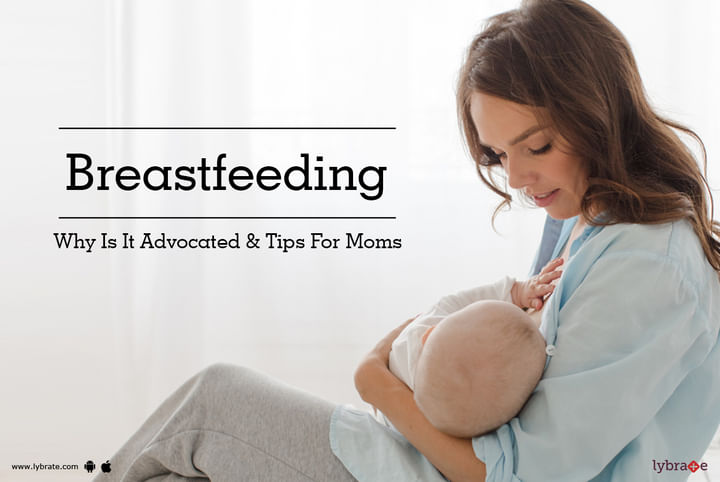Breastfeeding - Why Is It Advocated & Tips For Moms
Benefits of breastfeeding
- Breast milk contains the right balance of nutrients for your baby. Breast milk is easier to digest than is commercial formula.
- The antibodies in breast milk boost your baby's immune system. Breastfed babies get fewer colds and sinus and ear infections. They also have less diarrhea and constipation and a decreased chance of having allergies.
- Helps to increase the bonding with your baby
- Helps to reduce the risk of breast cancer in the mother
- No frantic runs to the store. No bottle cleanup. Many moms just roll over (especially if their baby is in a co-sleeper) and nurse in a sleepy state. Breast milk is instantly available and delivered warm.
- If you mostly breastfeed, you save money on formula
- Breast-feeding might even help you lose weight after the baby is born.
Its tough in the begining
Consider a breastfeeding class while you're pregnant. Getting baby to latch on may not feel natural. Ask for help in the hospital. Those first days, you might feel what experts call extreme tenderness -- and what we call pain. But once your baby is properly latched, discomfort should diminish during each nursing session and go away completely with time. Don't ignore shooting pain; a knot in the breast accompanied by soreness and redness could be a plugged milk duct, which can lead to mastitis, a nasty infection that requires antibiotics.
Start by getting comfortable. Support yourself with pillows if needed. Then cradle your baby close to your breast rather than learning forward to bring your breast to your baby. Support the baby's head with one hand and support your breast with the other hand. Tickle your baby's lower lip with your nipple to encourage your baby's mouth to open wide. Look and listen for a rhythmic sucking and swallowing pattern.
If you need to remove the baby from your breast, first release the suction by inserting your finger into the corner of your baby's mouth. If your baby consistently nurses on only one breast at a feeding during the first few weeks, pump the other breast to relieve pressure and protect your milk supply.
You're the food supply, so mother yourself
The nutrient needs of a woman are at an alltime high during breastfeeding. Keep taking prenatal vitamins, get ample calcium. By weight, 88% of breast milk is water. Breast milk volume increases from as little as 50 ml on the first day, to as much as 750 ml a day, when breastfeeding is well established. So, the most critical nutrient needed for the production of ample breastmilk to meet a suckling baby s demand, is water. Aim to drink at least 1.5- 2 litres/day.
You'll also need to learn to relax, however you can -- stress might affect letdown (the start of your milk flow). Take a warm shower, sink into a chair, and remember to breathe as you help your squirmy baby latch on.
Select wholesome food such as wholegrains, fruit, vegetables, low fat dairy products, lean meat, fish, poultry, eggs, beans, nuts and seeds to maximise the overall nutrient quality of your diet.If you need medication (for anything from a cold to a chronic condition), check with your doctor. Most meds -- but not all -- are fine in breast milk.



+1.svg)
